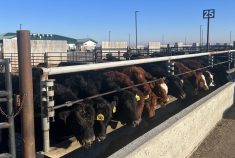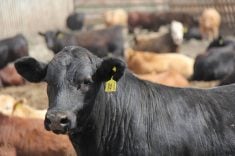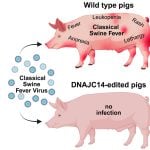Brad Wildeman is president of the Canadian Cattlemen’s Association
As most of you probably know, Canada’s Federal/Provincial/Territorial (FPT) Agriculture Ministers met in early July. We followed these proceedings closely and have a very mixed response at the Canadian Cattlemen’s Association (CCA) on what was discussed and decided upon during this day-long meeting.
Saying the Canadian beef and cattle industry is volatile would be an understatement. Many major challenges still need to be overcome — ones we had hoped that the recent FPT meeting would deliver some concrete solutions for — but this didn’t happen.
Read Also

Building demand together: The impact of Canada’s beef import levy
The beef import levy has become a central tool for ensuring balance in Canada’s beef industry
Now don’t get me wrong — we were pleased to see that the government made some progress on a variety of issues. Full support for the Agricultural Market Access Secretariat was received. And the Secretariat reached a significant milestone recently with the appointment of Fred Gorrell as director general.
The federal government also pushed forward the World Trade Organization (WTO) case against South Korea. We need this kind of drastic action to get our product back into South Korea. Taking our case to the WTO is a solid step in the right direction.
The CCA appreciates the Ministers’ willingness to conduct a thorough exploration into price insurance options for cattle producers — an issue we’ve worked hard on for several months. We asked the federal and provincial governments to commit resources to evaluate opportunities for providing risk management insurance to cattle producers, similar to the crop insurance programs available to grain producers.
We look forward to seeing the rollout of the new Livestock Auction Traceability Initiative — an important step towards building a comprehensive traceability system. Due to the complexities of traceability, further obstacles exist to establishing a seamless system — one that’s reliable, works at the speed of commerce, is cost-effective and efficient. We appreciate the government’s recognition that implementing a better system will incur significant costs and their intention to share in these costs with auction marts. Individually, auction marts face a huge hurdle for the initial purchase, modification and installation of the necessary equipment.
Unfortunately, several significant industry issues made no progress during the FPT meeting.
No firm commitment was made to improve disaster programming. We believe this requires a three-pronged approach when natural disasters occur, with each form of assistance occurring simultaneously:
immediate cash assistance for producers to buy feed or move cattle to areas where feed is available;
tax deferral for producers that sell their cattle due to these disasters, but plan to replace them in the future; plus
assistance to rehabilitate their forages after the disaster ends.
Manitoba’s disastrous weather last summer proved how effective this comprehensive approach could be when the federal and Manitoba governments implemented this to assist the affected producers. It helped. We encourage the federal government to adopt this approach as a national disaster recovery program.
On another front, Business Risk Management (BRM) programs saw no measurable improvements, despite the industry’s continuous calls to improve the current suite. Although we greatly appreciate the government’s recognition that the BRM programs aren’t working and are willing to review these, we hoped that some of the CCA recommendations put forward in Fall 2007 would have been adopted.
The only firm deliverable that arose from this meeting was establishing the deadline for national implementation of Canada’s mandatory traceability system by 2011. However this completely disregards the principles set out by producers for tracing cattle.
Canada’s beef and cattle industry has yet to see any positive returns from the burden of costly regulations added due to BSE. We are the first country to adopt national animal identification and develop a comprehensive national traceability system. If our governments truly want to assist the industry with developing the national traceability program, they need to focus on helping us overcome barriers, rather than heaping more regulations on us.
In future, there may come a time when the industry would collectively agree to mandatory traceability measures, but it certainly isn’t now.
Remember to let your local federal and provincial elected officials know whether you support or disagree with the FPT meeting outcome. While the CCA continually lobbies the federal government, it’s equally important that Members of Parliament and Members of the Legislative Assemblies hear directly from their grass-roots constituents.
2009 National Convention and Semi-annual Meeting — August 10-14, 2009
Join us in Regina for this annual event. It’s a great a time to share your insights and experiences with the industry. Meet your national association’s staff and board members face-to-face as they update you on the work we undertake for the industry. Plus, there’s plenty of time for informal networking with producers, government officials, industry experts and the CCA.
Stay up-to-date with the CCA’s work for the industry as it happens. Sign-up for our news and information updates, via e-mail and/or fax at www.cattle.ca,or contact CCA Communications at 403-275-8558.















